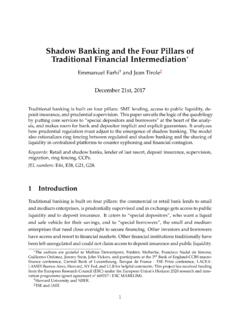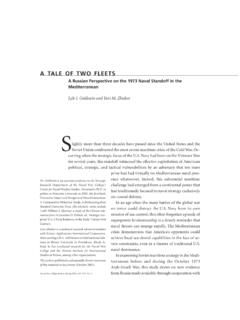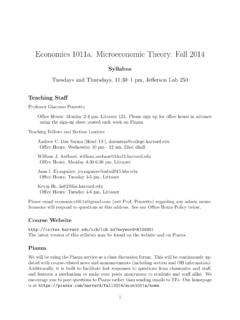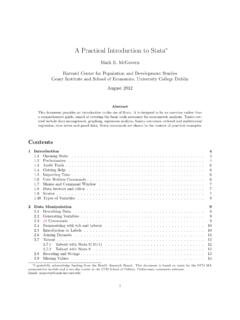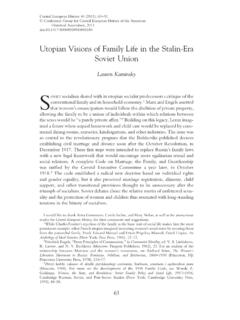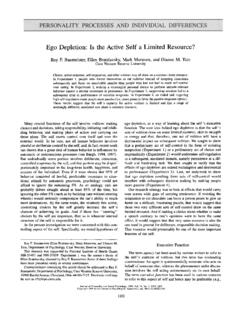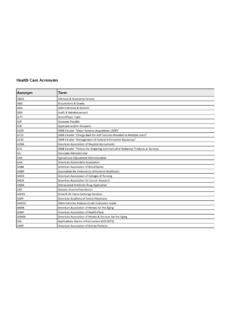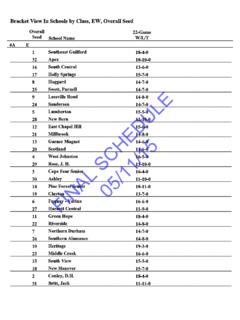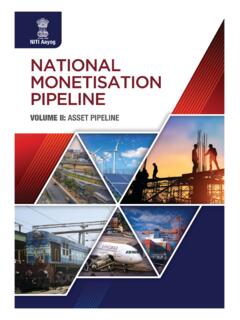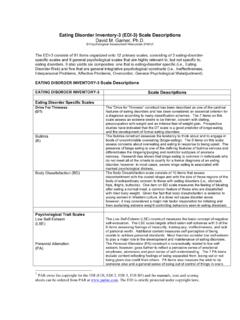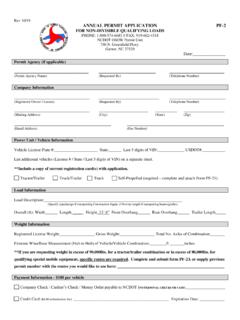Transcription of The Politics of Selecting the Bench from the Bar: The ...
1 The Politics of Selecting the Bench from the Bar:The Legal Profession and Partisan Incentives toIntroduce Ideology Into Judicial SelectionAdam Bonica*Maya Sen a new dataset that captures the ideological positioning of nearly half a million judgesand lawyers who have made campaign contributions, we present evidence showing how ideology affectsthe selection of judges across the state and federal judicial hierarchies. We document that the higherthe court, the more it deviates ideologically from the overall population of attorneys, suggesting an evenstronger role of ideology in judicial selection.
2 We show similarly stronger findings in jurisdictions wherejudges are selected via political appointments or through partisan elections. Our findings therefore suggestthat ideology is an important component of judicial selection primarily when (1) doing so leads to expectedbenefits to political parties, (2) when the jurisdiction s selection process affords them the opportunity to doso, and (3) when it concerns the most important courts. The study is the first to provide a direct ideologicalcomparison across tiers of the judiciary and between judges and lawyers and to document how and why American courts are politicized.
3 *Assistant Professor, 307 Encina West, Stanford University, Stanford CA 94305 IntroductionThe implications of a politicized judiciary in a polarized era of American Politics have been a mat-ter of considerable interest. Reflecting the notion that the courts will take on an expanded policy-making role during periods of intense legislative gridlock (McNollgast, 1995; De Figueiredo,Weingast, and Jacobi, 2008; Bailey and Maltzman, 2011), recent years have seen courts de-termine state and national policy on some of the most politically charged controversies of the day,including affirmative action, health care reform, and same-sex marriage.
4 The business of select-ing judges has also become ideologically contentious, both at the state and federal levels. TheAmerican Bar Association (ABA), for example, has long maintained that judges should be chosenstrictly on merit-oriented criteria, while many on the right have challenged whether the ABA istruly non-partisan and emphasize the need to correct for political imbalances in the legal commu-nity. These battles have gone all the way to the White House. In 2001, for example, the George Administration announced that it would no longer rely on what it perceived to be liberally bi-ased ABA judicial ratings, while Democrats sided with the ABA and accused Bush of interjectingpolitics into judicial selection.
5 More recently, the administration of Donald Trump has followedthe example set by the Bush Administration in declaring that the ABA would not be consulted inthe selection of federal , despite the possible role of Politics in the selection of judges, our knowledge of howand why American courts develop ideologically leanings or become politicized is limited. Indeed,although important scholarship has looked at closely at ideology, particularly at the SupremeCourt (Martin and Quinn, 2002; Bailey, 2007; Clark and Lauderdale, 2010; Lauderdale and Clark,2014) and other federal courts (Epstein et al.)
6 , 2007), and its strong relationship with decisionmaking ( , Epstein, Landes, and Posner, 2013), studying ideologically-based judicial selectionacross the different tiers of both federal and state courts has proved challenging from an empiricalstandpoint. In addition, although it is clear that ideology is important in the selection of judges,it has been difficult to develop a consistent theory that also takes into account different judicialselection systems and variation in the ideological composition of the candidate pool. Nonetheless,1as the examples of same-sex marriage and health care reform show, understanding how ideologycomes to play a role in the selection of judges is of fundamental importance and provides thenecessary context for the more well-studied relationship between ideology and judicial decisionmaking ( , Epstein, Landes, and Posner, 2013; Sunstein et al.
7 , 2006).In this paper, we develop both a theory and the first comprehensive exploration of how ideologyinfluences the selection of judges in the We gain traction on the question by starting with theimportant fact that all judges in the are drawn from the legal community that is, theory ofideologically-based judicial selectionthen posits that the ideological composition ofthe judiciary is a function of, among other things, two key inputs: (1) the ideological distribution ofattorneys who serve as the pool from which judges are drawn and (2) political forces ( , politi-cians) attempting to shape the judiciary.
8 Left to a judicial selection process devoid of ideologicalconsiderations, America s courts should, after controlling for relevant demographic characteris-tics, closely resemble the population of attorneys in the jurisdiction from which they are , as ideology becomes an increasingly important consideration in judicial selection, theideological profile of the courts will deviate from that of attorneys and start to look more like thatof the relevant political use this intuition to explore how, why, and to what extent political actors will draw onideology in judicial selection across different jurisdictions.
9 We do so by linking together twosources of data. The first is a dataset that includes nearly all of the nation s attorneys, gathered fromthe Martindale-Hubbell legal directory. The second is the Database on Ideology, Money in Politics ,and Elections (DIME) (Bonica, 2013). Combined together, these data allow us to identify thecampaign contributions and corresponding ideological common-space scores for 395,234 and judges. As such, these data represent the first comprehensive, consistently measuredset of ideological estimates for judges across the judicial hierarchy (Bonica and Sen, 2016).
10 Thesedata not only allow us to compare the ideologies of various tiers of the American judicial systembut also to compare judges to attorneys at both the state and national use these data to make several contributions. First, as an empirical matter, we show thatlawyers are more liberal than the population, but that judges are as whole are more conserva-tive than attorneys. This is particularly true for (1) judges who sit in higher, more politically im-2portant courts such as state high courts and the Courts of Appeals and (2) among judgeswho are appointed via gubernatorial or legislative appointments.


